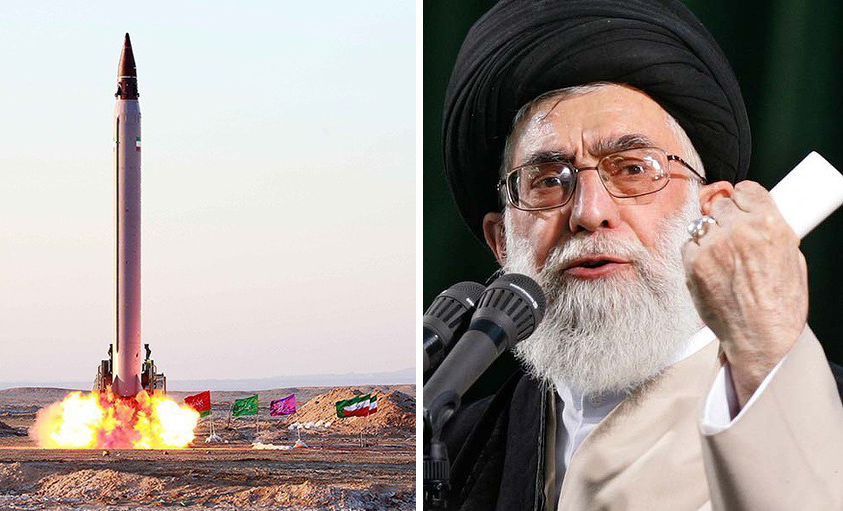Iran: New Terrorist Activity in Europe
كون كولين/معهد كايتستون: انشطة إيران الإرهابية الجديدة في أوروبا
Con Coughlin/Gatestone Institute/June 19/2019
https://www.gatestoneinstitute.org/14409/iran-terrorism-europe
One of the more disturbing discoveries regarding Iran’s ever-expanding terrorism horizons has emerged in London where it was revealed by the Daily Telegraph earlier this month that a terrorist cell with links to Iran had been caught stockpiling tonnes of explosive materials on the outskirts of London at a secret bomb factory.
British intelligence officials have now concluded the stockpile was part of an international Hizbollah plot to lay the foundations for future terror attacks in Europe.
One positive outcome from Iran’s increased terrorist activity has been to persuade the British government finally to designate the entire Hizbollah organisation as a terrorist organisation.
Now, with Iran being held responsible for the latest escalation in tensions in the Gulf, Britain and other European powers should demonstrate their resolve to oppose Iran’s well-documented sponsorship of terrorism by backing the Trump administration in its latest confrontation with the ayatollahs.
Earlier this year, Britain’s Home Secretary, Sajid Javid, formally designated the entire Hizbollah organisation as a terrorist organisation.
Iran is intensifying its efforts to build a global terror network as the ayatollahs come under increasing economic and political pressure resulting from US sanctions.
While US officials continue to investigate Iran’s involvement in the recent series of attacks on a number of oil tankers operating in the Gulf, counter-terrorism experts have uncovered evidence that Iran is also working hard to develop its terrorist infrastructure well beyond the confines of the Middle East.
Intelligence officials are particularly concerned about Iran’s activities in Europe where they have identified a recent upsurge in Iranian-sponsored terrorist activity.
The first suggestion that Iran was using Europe as a new theatre in which to stage its terrorist operations came in 2012 when a Hizbollah terror cell carried out a bomb attack against a tour bus in Bulgaria that was ferrying a party of Israeli holidaymakers to a local airport. Five Israelis and the Bulgarian bus driver were killed in the attack, and 32 Israelis were injured.
Evidence subsequently produced by Bulgarian security officials to the European Union showed that two Lebanese-based Hizbollah terrorists were responsible for the attack, which resulted in the EU taking the unprecedented step of officially listing the military branch of Hizbollah as a terrorist organisation.
More recently European security officials have registered a significant upsurge in Iranian-backed terrorist activity. In June last year two Iranian diplomats were expelled from the Netherlands for plotting political assassinations in the country, while the same month France’s intelligence ministry foiled a bomb plot to target a rally of opposition groups in Paris. Then in October the Danish authorities accused Iran of an “unusual and serious” plot to murder an Arab separatist leader.
Moreover, all these plots took place after Tehran signed the 2015 nuclear deal with the major world powers, an agreement that the Obama administration claimed would encourage the ayatollahs to undertake a more constructive engagement in the outside world.
Instead the opposite has been the case, with Iranian-linked terrorist organisations like Hizbollah intensifying and expanding their terrorist operations far beyond their natural habitat in the Middle East, with Europe increasingly becoming the focus of their operations.
One of the more disturbing discoveries regarding Iran’s ever-expanding terrorism horizons has emerged in London where it was revealed by the Daily Telegraph earlier this month that a terrorist cell with links to Iran had been caught stockpiling tonnes of explosive materials on the outskirts of London at a secret bomb factory.
The Hizbollah cell was found to have stashed thousands of disposable ice packs containing ammonium nitrate — a common ingredient in homemade bombs. Ammonium nitrate was used in the Oklahoma City bombing in 1995 that killed at least 168 people.
Notably, the London bomb-making cell was discovered in the autumn of 2015, shortly after Britain had become one of the signatories to the controversial nuclear deal with Iran.
Even though both former prime minister David Cameron and Theresa May, who was then serving as Home Secretary, were informed of the discovery, that it was not made public suggests they were keen not to reveal any information that might damage the nuclear deal.
British intelligence officials have now concluded the stockpile was part of an international Hizbollah plot to lay the foundations for future terror attacks in Europe. They have drawn parallels between the stash of chemicals discovered in London and a similar case in Cyprus at around the same time when Hassan Bassam Abdallah, a 28-year-old member of Hizbollah’s military wing, was convicted of possessing 65,000 ice packs filled with ammonium nitrate which he admitted were for use in future terrorist attacks. He was subsequently jailed for six years.
The discovery of the London terror cell with links to Hizbollah has certainly prompted British counter-terrorism officials to undertake a radical review of their assessment of the terror threat Iran poses to the UK.
One positive outcome from Iran’s increased terrorist activity has been to persuade the British government finally to designate the entire Hizbollah organisation as a terrorist organisation.
Previously London sought to make a distinction between the group’s political and military wings, with only the latter designated a terrorist organisation, thereby allowing representatives of the political wing to maintain links with prominent British politicians such as Labour leader Jeremy Corbyn.
Now, with Iran being held responsible for the latest escalation in tensions in the Gulf, Britain and other European powers should demonstrate their resolve to oppose Iran’s well-documented sponsorship of terrorism by backing the Trump administration in its latest confrontation with the ayatollahs.
*Con Coughlin is the Telegraph’s Defence and Foreign Affairs Editor and author of “Khomeini’s Ghost”.
© 2019 Gatestone Institute. All rights reserved. The articles printed here do not necessarily reflect the views of the Editors or of Gatestone Institute. No part of the Gatestone website or any of its contents may be reproduced, copied or modified, without the prior written consent of Gatestone Institute.



















